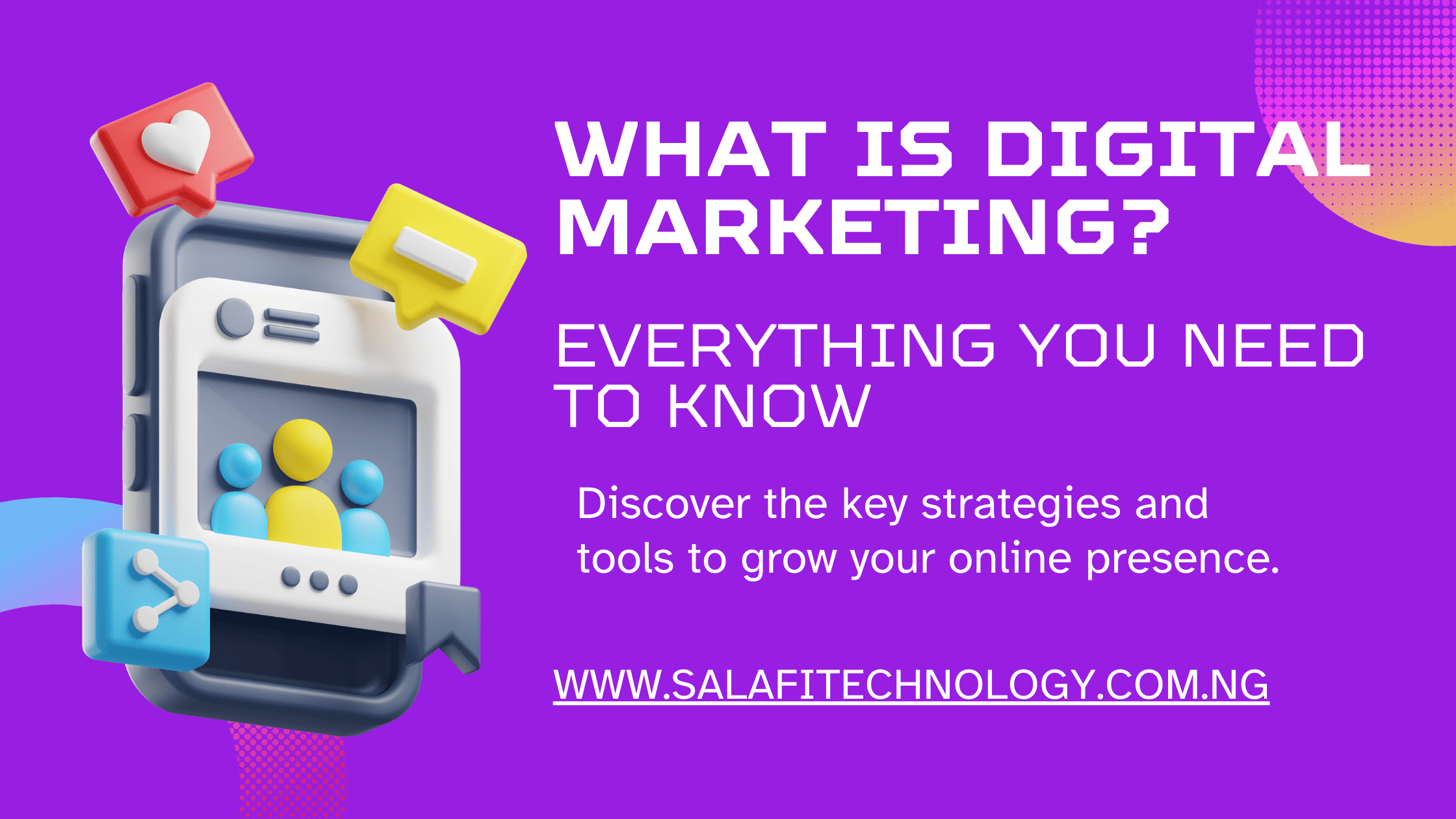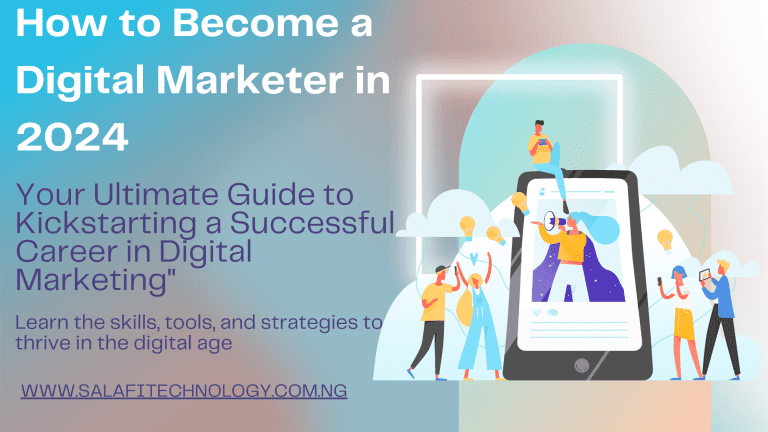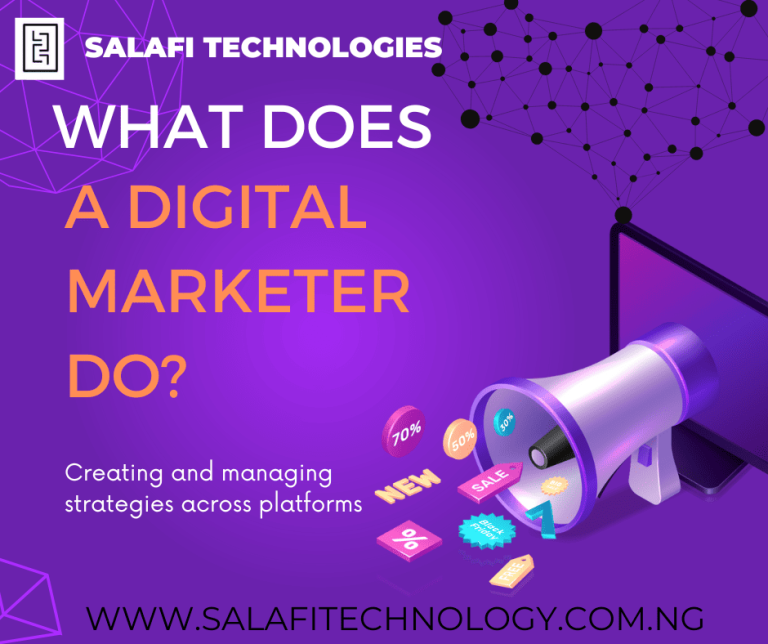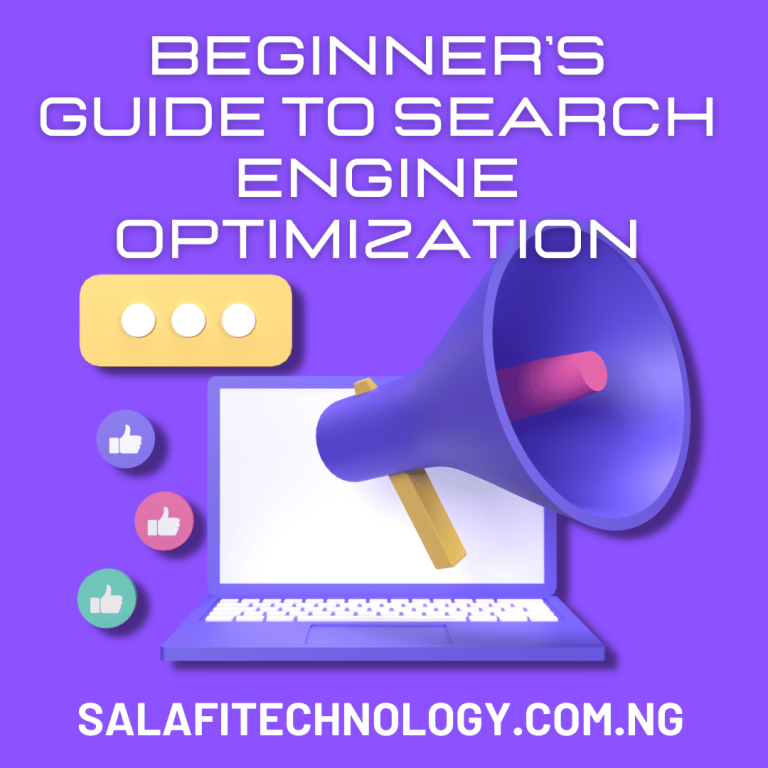Don't forget to share this post!
In today’s digital age,
digital marketing has become necessary for businesses looking to grow and thrive online. But what exactly is digital marketing? Simply put, it refers to all marketing efforts that use the internet and online-based technologies, such as computers, mobile devices, and digital platforms, to connect with potential customers.
Online marketing is a key part of this digital landscape, encompassing a wide range of strategies to build a brand’s presence and engage with its audience through various online channels.
The importance of digital marketing for businesses cannot be overstated. Whether you’re a small business or a large enterprise, it offers opportunities to reach a broader audience, generate leads, and ultimately drive revenue. With more consumers spending their time online, businesses must adopt digital strategies that align with their goals.
In this blog post, we’ll explore the key aspects of digital marketing, including major marketing channels such as
SEO,
social media marketing, and
PPC advertising. You’ll also learn about the importance of creating a well-rounded
digital marketing strategy, the current trends shaping the industry, and why businesses need to stay updated with evolving technologies.
What is digital marketing?
Digital marketing is the component of marketing that uses the Internet and online-based digital technologies such as desktop computers, mobile phones, and other digital media and platforms to promote products and services. These channels include websites, search engines, social media platforms, email, and mobile apps. Unlike traditional marketing, which relies on offline tactics like TV ads, billboards, or direct mail, it enables businesses to connect with their audiences in real-time through the Internet.
Difference Between Digital and Traditional Marketing
The key difference between
digital and
traditional marketing lies in the mediums used and the level of audience engagement. At the same time, traditional marketing focuses on offline efforts such as print ads, radio, or TV, and digital marketing leverages online tools to reach target audiences. Digital marketing is often more cost-effective and measurable, providing businesses with insights and data to refine their strategies. Traditional marketing, while still effective in certain contexts, cannot track and optimize results in real-time the way digital marketing does.
Does Digital Marketing Benefit Every Business?
Online marketing can be effective for businesses across all industries. No matter what products or services your company offers, the core principle remains the same: understanding your audience’s needs by developing detailed buyer personas and delivering relevant content online. However, the way digital marketing is applied will differ depending on the nature of your business.
Digital Marketing for B2B Businesses
For companies operating in the business-to-business (B2B) space, digital marketing typically revolves around generating leads, with the primary goal being to connect potential clients with sales teams. A key focus of your marketing strategy might be to attract top-quality prospects through your website and engage with them through targeted online channels. Aside from your website, your efforts are likely to be concentrated on professional platforms such as LinkedIn, where your target audience is active.
Digital Marketing for B2C Businesses
If your company is business-to-consumer (B2C), your digital marketing approach will likely focus on driving visitors to your website and converting them into customers without the need for direct sales interactions. Traditional lead generation may not be as relevant, as the buyer’s journey tends to be quicker, leading visitors to purchase soon after visiting your site. In this case, showcasing product features early in the process and using compelling calls-to-action can help accelerate conversions. Channels like Instagram and Pinterest may be more effective for B2C businesses compared to professional platforms like LinkedIn.
Types of Digital Marketing
To effectively engage with audiences and achieve business goals, companies must utilize a variety of
digital marketing channels. Each channel offers unique advantages and can be tailored to specific target audiences. Below is an overview of the main marketing channels that play a crucial role in a successful digital marketing strategy.
1. Search Engine Optimization (SEO)
SEO is the practice of optimizing a website to improve its visibility on search engines like Google. The importance of ranking high on search engines cannot be overstated, as most users tend to click on the top results. By implementing effective SEO strategies—such as keyword research, on-page optimization, and link building—businesses can increase organic traffic, attract more potential customers, and establish credibility in their industry.
2. Social Media Marketing
Social Media Marketing involves using platforms like Facebook, Instagram, Twitter, and LinkedIn to connect with target audiences. This channel is vital for building relationships, increasing
brand awareness, and driving engagement. Social media allows businesses to share content, run targeted ads, and interact with followers in real-time, fostering a sense of community and encouraging customer loyalty.
3. Content Marketing
Content Marketing focuses on creating valuable and relevant content to attract and engage customers. Whether through blog posts, videos, infographics, or podcasts, the role of valuable content is to inform, entertain, and solve problems for the audience. High-quality content not only helps establish a brand as an authority in its field but also supports SEO efforts by attracting backlinks and increasing website traffic.
4. PPC Advertising
PPC (Pay-Per-Click) Advertising is a form of paid online advertising where businesses pay a fee each time their ad is clicked. This channel allows companies to reach potential customers quickly by placing ads in search engine results or on social media platforms. PPC is particularly effective for generating immediate traffic and can be targeted to specific demographics, making it a valuable tool for driving conversions.
5. Email Marketing
Email Marketing remains one of the most effective digital marketing strategies. It involves building and nurturing email lists to communicate directly with customers. By sending personalized messages, promotions, and valuable content, businesses can maintain relationships with both existing and potential customers. Effective email marketing helps drive engagement and fosters brand loyalty.
6. Influencer Marketing
Influencer Marketing utilizes individuals with significant followings on social media to promote products or services. By partnering with influencers, businesses can tap into established trust and credibility, reaching a wider audience. This form of marketing is particularly effective for brands targeting specific niches, as influencers can authentically connect with their followers and drive engagement.
7. Digital Advertising
Digital Advertising encompasses various paid advertising formats, including display ads, banner ads, and video ads. These ads can be placed on websites, social media platforms, and other digital spaces, allowing businesses to target specific audiences based on behavior, interests, and demographics. Digital advertising plays a crucial role in increasing visibility and driving traffic to websites.
Why is digital marketing important?
In today’s competitive landscape, digital marketing is not just an option; it’s a necessity for businesses of all sizes. By leveraging various online strategies, companies can achieve critical objectives that drive growth and success. Here are some of the key reasons why digital marketing is essential for businesses:
1. Driving Website Traffic
One of the primary benefits of digital marketing is its ability to drive
website traffic. By employing strategies such as
SEO,
PPC advertising, and
social media marketing, businesses can attract potential customers to their websites. Increased traffic not only improves visibility but also opens the door to higher engagement and conversion opportunities. The more visitors a website receives, the greater the chances of generating leads and sales.
2. Building Brand Awareness
Brand awareness is crucial for establishing a company’s presence in the market. Digital marketing strategies, including content marketing and social media campaigns, allow businesses to reach a larger audience and create a memorable brand image. By consistently delivering valuable content and engaging with audiences online, brands can enhance their visibility and reputation, leading to increased trust and customer loyalty.
3. Reaching a Global Audience Through Online Channels
One of the unique advantages of digital marketing is its ability to reach a global audience. Unlike traditional marketing methods that are often limited by geographical boundaries, digital marketing allows businesses to connect with potential customers worldwide. Through targeted online campaigns and social media platforms, companies can expand their reach and tap into new markets, driving growth and increasing sales.
4. Enhancing Conversion Optimization
Conversion optimization refers to the process of improving the percentage of website visitors who take desired actions, such as making a purchase or signing up for a newsletter. Digital marketing provides tools and strategies to analyze user behavior and refine marketing efforts accordingly. By using data-driven insights, businesses can optimize their websites, landing pages, and marketing campaigns to enhance user experience, ultimately leading to higher conversion rates.
Developing a Digital Marketing Strategy
Creating a robust digital marketing strategy is essential for businesses aiming to achieve their marketing goals efficiently and effectively. A well-rounded
digital marketing strategy not only aligns marketing efforts with business objectives but also helps in optimizing resources and maximizing returns on investment.
Having a comprehensive digital marketing strategy allows businesses to target their audience effectively, leverage the right channels, and adapt to changing market conditions. It serves as a roadmap that guides marketing efforts and ensures that all activities are aligned with overall business goals, facilitating better resource allocation and more consistent messaging across platforms.
Steps for Creating a Successful Digital Marketing Strategy
- Defining Target Audience Understanding who your target audience is and what their preferences are is the foundation of any successful digital marketing strategy. By conducting market research and analyzing customer data, businesses can create detailed buyer avatars that help tailor marketing messages and campaigns to resonate with specific segments of the audience.
- Choosing the Right Marketing Channels Once the target audience is identified, the next step is to choose the appropriate marketing channels to reach them. This may include a mix of SEO, social media marketing, email marketing, and content marketing, among others. Selecting the right channels ensures that your message is delivered where your audience spends their time, increasing the likelihood of engagement and conversion.
- Setting Measurable Goals Establishing clear, measurable goals is critical for evaluating the success of your digital marketing efforts. Goals could include increasing website traffic, improving conversion rates, or boosting brand engagement on social media. By setting specific targets, businesses can track progress, identify areas for improvement, and adjust strategies accordingly.
- Monitoring Performance and Adjusting as Needed The digital marketing landscape is constantly changing, and ongoing monitoring is essential to remain competitive. Using analytics tools, businesses can assess the performance of their marketing campaigns in real time. This data-driven approach allows for timely adjustments to strategies, ensuring that marketing efforts are continually optimized for better results.
Current Digital Marketing Trends
As the digital landscape evolves, businesses must stay ahead of emerging trends to remain competitive and effectively engage with their audiences. Here’s a brief overview of the current
digital marketing trends that are shaping the future of the industry:
AI and Machine Learning in Marketing
Artificial intelligence (AI) and machine learning are revolutionizing the way businesses approach digital marketing. These technologies enable marketers to analyze vast amounts of data, gain insights into customer behavior, and automate various marketing processes. From personalized content recommendations to chatbots that enhance customer service, AI is becoming a pivotal tool in creating more efficient and targeted marketing campaigns.
Video Marketing Growth
Video marketing continues to grow in popularity as consumers increasingly prefer visual content. Platforms like YouTube, TikTok, and Instagram have transformed how brands communicate with their audiences. Businesses that leverage video marketing can capture attention more effectively and easily convey messages. From short promotional clips to live streams and tutorials, video content enhances brand storytelling and boosts engagement.
Personalization in Email and Content Marketing
Personalization has become a key focus in both email and content marketing. By tailoring messages and content to individual preferences and behaviors, businesses can create more meaningful interactions with their audience. Personalized emails have higher open and conversion rates, while customized content enhances the user experience and builds brand loyalty. Implementing personalization strategies helps brands stand out in crowded digital spaces.
Voice Search Optimization
With the rise of smart speakers and voice-activated devices, optimizing for voice search has become increasingly important. Consumers are using voice search to find information quickly and easily, leading to a shift in SEO strategies. Businesses must focus on natural language keywords and long-tail phrases, as voice searches tend to be more conversational. Ensuring that websites are optimized for voice search can enhance visibility and improve the user experience.
Conclusion
Understanding
digital marketing is vital for businesses aiming to succeed in today’s competitive environment. We’ve discussed the definition of digital marketing, its distinction from traditional marketing, and the significance of various strategies and channels. Key channels like SEO, social media marketing, and PPC advertising empower businesses to drive website traffic, build brand awareness, and improve conversion optimization.
To stay competitive, businesses must embrace the dynamic nature of digital marketing and continuously refine their strategies. Need help optimizing your digital marketing efforts? Visit our
contact page to see how we can assist you in navigating the ever-changing digital landscape
Don't forget to share this post!





One Comment